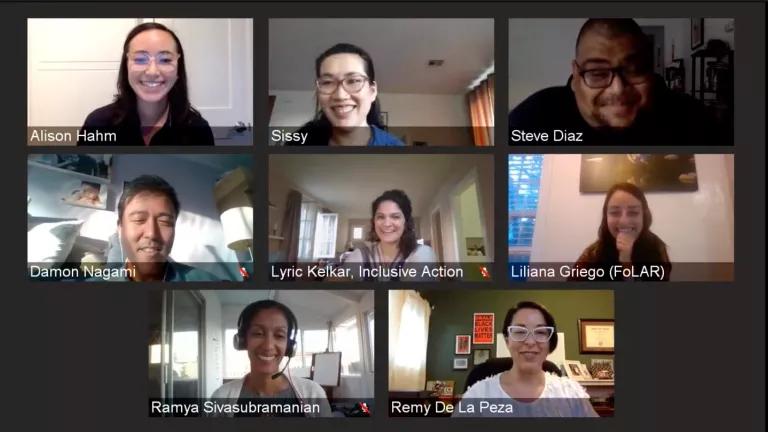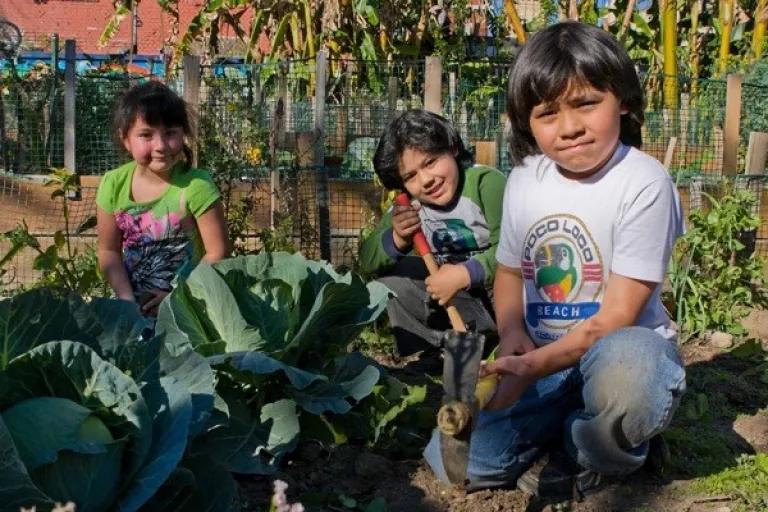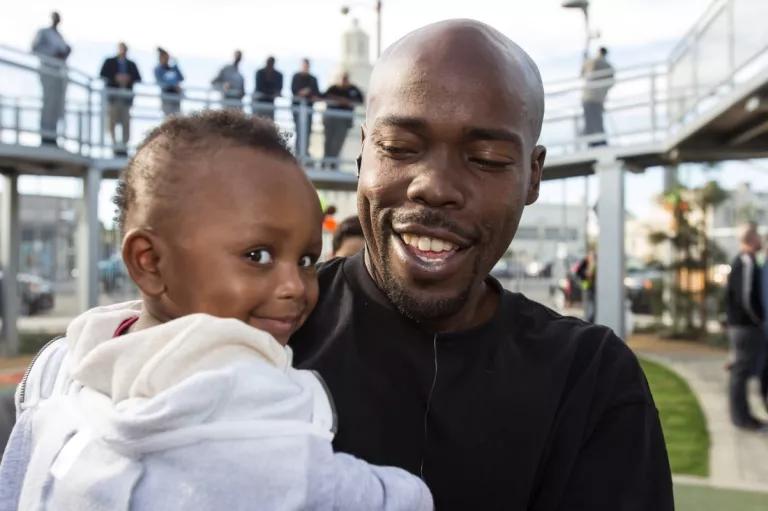Community Experts on Equitable Access to Nature in LA

Access to parks is plagued by the same inequity and systemic racism that so thoroughly pervades our society. In a recent webinar entitled “Advancing Park Equity in Los Angeles and Beyond,” we hosted community experts who offered their insights on the importance of park equity to their communities, and how systemic racism—specifically, racist siting decisions and policies such as redlining, racially restrictive covenants, and exclusionary zoning—has deprived low-income communities of color of access to parks and nature in Los Angeles and beyond.
Panelists Sissy Trinh, Executive Director of the Chinatown-based Southeast Asian Community Alliance (SEACA), Liliana Griego, Senior Manager of Policy, Advocacy, and Engagement at Friends of the LA River (FOLAR), Lyric Kelkar, Senior Associate for Policy & Research at Inclusive Action for the City, and Steve Diaz, Deputy Director of the Los Angeles Community Action Network (LA CAN) shared what they are doing to change that.
“A lot of people use parks as an extension of their homes.”
Sissy Trinh spoke on the experience of Chinatown residents, most of whom are considered extremely low-income and live in shared, overcrowded housing. “A lot of people use parks as an extension of their homes,” Trinh explained. Local parks serve as the primary place that these residents gather with friends and family, play games, learn about local resources, and relax.
Unfortunately, from Trinh’s perspective, many park projects ignore the needs of the existing community, while developers too often ignore how new housing projects exacerbate displacement pressures and inequitable park access. The proposed Elysian Park Lofts project in Chinatown is an example of this planning failure. This 900-unit luxury housing development, dubbed by critics as the “great wall of Chinatown,” would create significant barriers for neighborhood residents to access Los Angeles State Historic Park while also failing to include any affordable housing.
We stand behind SEACA, Chinatown residents, and community groups in asking for community-driven planning and projects that meet the needs of the people and small businesses of Chinatown, without worsening displacement pressures and widening unequal access to nature.
“We have to ensure that as the LA River becomes more attractive, it’s still accessible for everyone and that it becomes a resource for everyone to enjoy.”
For Friends of the LA River (FoLAR), equitable access to nature revolves around LA River restoration and removing barriers that prevent surrounding communities—some of which are Spanish-only speaking and low-income—from enjoying this historic waterway. “We have to ensure that as the LA River becomes more attractive, it’s still accessible for everyone and that it becomes a resource for everyone to enjoy,” Liliana Griego stated.
Echoing themes raised by Trinh, Griego noted that another proposed private development in Glassell Park, Casitas Lofts (now rebranded as True North Landing), threatens to interfere with LA River restoration efforts while exacerbating gentrification along the river and in northeast LA communities. Griego emphasized the ineffectuality of Casitas Lofts’ efforts to address LA's affordable housing crisis, citing the mere 8% of over 400 total units that the project designates as affordable.
For the last year and a half, NRDC has joined FoLAR, Clockshop, and Los Angeles River State Park Partners in opposing the project as proposed and demanding community-centered restoration and preservation of the LA River.

“Park access for vendors means access to economic stability.”
Lyric Kelkar with Inclusive Action for the City, which has been a co-leader of the Los Angeles Street Vendor Campaign for years, explained how “park access for [street] vendors means access to economic stability.” Kelkar described how in low-income communities of color, street vendors fill the gap of unmet needs caused by generations of disinvestment in these neighborhoods. The affordable fresh fruits, vegetables, and hot meals sold by street vendors are crucial to local residents. In Kelkar’s view, when park access is limited for vendors, it simultaneously limits community members’ access to their livelihoods and to much-needed resources.
In response to the coronavirus pandemic, city and county officials have welcomed outdoor dining, rushed to expedite sidewalk seating permits, and allowed restaurants to convert parking lots into dining areas. Unfortunately, “vendors are not enjoying the permitting flexibility that brick and mortar property owners have amid COVID-19,” Kelkar explained. “We know that street vendors are typically low-income people of color,” which makes these arbitrary and exclusionary rules and regulations against street vending inherently racist.
“COVID-19 and ongoing civil unrest has only called equity questions to the table in a more visible and public way.”
Steve Diaz works to ensure people dealing with poverty have voice, power, and opinion in decisions directly impacting them, particularly in “Skid Row Los Angeles and in South Central, two historically forgotten communities when it comes to neighborhood amenities overall.” Diaz explained that hostile architecture, stringent policies that criminalize houseless people, and lack of quality parks perpetuate the targeting and harassment of houseless folks who are overwhelmingly people of color.
Diaz shared that “COVID-19 and ongoing civil unrest has only called equity questions to the table in a more visible and public way.” For Diaz, park spaces have long been used as spaces for criminalization of Black and brown people due to racial profiling and planning policies that center white bodies and experiences.

Advancing park equity requires dismantling systemic racism.
Inequitable access to nature is a symptom of systemic racism. Advancing park equity requires reversing decades of racist land use policies and questioning systems of power that deprive communities of color of their physical wellbeing, economic health, and fundamental right to safety. As Trinh explained, “cities chose to put factories and highways in low-income communities of color,” and those decisions have concentrated vehicle emissions, lack of shade, extreme heat, and air pollution in communities of color throughout Los Angeles and beyond. While some may say that these were unintended consequences, we agree with Trinh that those “consequences, unintended or not, are just as racist.”
Part of dismantling that requires us, particularly as a national green organization, to shift. It calls on us to work in solidarity for more equitable and just outcomes, and to do so in ways that build power on the ground and are rooted in and accountable to those who are most impacted. We were humbled to be able to co-create this webinar with our partners as a space that centers low-income communities of color and our partners’ voices, rather than our own. It is our hope that this webinar will serve as an example of how we can elevate community expertise and solutions to support our partners, and as another small step towards the culture shift needed within our organization—and beyond—to be better allies.
Special thanks to Alison Hahm, Kathryn Dunn, Dani Garcia, Daniela Arellano, and Rémy De La Peza for their research and contributions to this blog.




